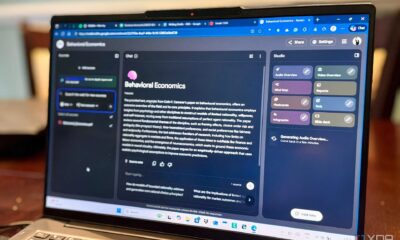Health
Multilingualism Linked to Slower Aging, International Study Finds

A recent study published in the journal Nature Aging suggests that speaking multiple languages may contribute to healthier aging. The research indicates that multilingual individuals experience slower biological aging processes compared to their monolingual counterparts. Conducted across 27 European countries, the study analyzed data from 86,149 participants and found significant evidence of the protective effects of multilingualism on both brain and body health.
The research utilized a novel approach known as the biobehavioral aging clock framework. This method enabled the researchers to calculate biobehavioral age gaps (BBAGs) by employing artificial intelligence models trained on extensive health and behavioral data. These models assess various factors, including physical conditions like hypertension and diabetes, alongside protective elements such as education and physical activity. The BBAG represents the difference between a person’s predicted biological age and their actual age, providing insights into whether they are aging healthily or experiencing accelerated aging.
Individuals from countries where multiple languages are commonly spoken were found to be 2.17 times less likely to show signs of accelerated aging. In contrast, monolingual individuals exhibited more than double the likelihood of early aging indicators. These results remained statistically significant even after accounting for various linguistic, social, and physical factors.
Key Findings and Expert Insights
The study’s findings were consistent across both cross-sectional and longitudinal analyses, suggesting that multilingualism not only reflects current aging differences but also predicts a reduced risk of accelerated aging over time. Dr. Agustín Ibáñez, the senior author and Scientific Director of the Latin American Brain Health Institute, noted that the results provide compelling evidence for multilingualism as a protective factor for healthy aging. He stated, “Language learning and use engage core brain networks related to attention, memory, and executive control—mechanisms that may reinforce resilience throughout life.”
Lead author Dr. Lucia Amoruso, affiliated with the Basque Center on Cognition, Brain and Language, emphasized the cumulative nature of the protective effect: “The more languages people spoke, the greater their protection against aging-related decline.” Co-lead author Dr. Hernán Hernández highlighted the broader implications of these findings, suggesting that multilingualism serves as an accessible and low-cost strategy for promoting healthy aging among diverse populations.
Public Health Implications
This extensive epidemiological investigation represents a significant advancement in understanding the interplay between cognitive, social, and cultural factors in brain health. The authors advocate for the incorporation of language learning into public health and educational policies, which could enhance cognitive resilience and alleviate the societal impacts of aging populations. By fostering multilingualism, communities may not only enrich individual lives but also contribute to healthier aging on a broader scale.
In summary, the evidence presented in this study underscores the potential benefits of multilingualism, opening avenues for further research and practical applications in public health strategies aimed at improving quality of life as populations age. For more details, refer to the article by Lucia Amoruso et al, “Multilingualism protects against accelerated aging in cross-sectional and longitudinal analyses of 27 European countries,” published in Nature Aging in 2025.
-

 Technology5 months ago
Technology5 months agoDiscover the Top 10 Calorie Counting Apps of 2025
-

 Health3 months ago
Health3 months agoBella Hadid Shares Health Update After Treatment for Lyme Disease
-

 Health3 months ago
Health3 months agoErin Bates Shares Recovery Update Following Sepsis Complications
-

 Technology4 months ago
Technology4 months agoDiscover How to Reverse Image Search Using ChatGPT Effortlessly
-

 Technology1 month ago
Technology1 month agoDiscover 2025’s Top GPUs for Exceptional 4K Gaming Performance
-

 Technology3 months ago
Technology3 months agoElectric Moto Influencer Surronster Arrested in Tijuana
-

 Technology5 months ago
Technology5 months agoMeta Initiates $60B AI Data Center Expansion, Starting in Ohio
-

 Technology5 months ago
Technology5 months agoRecovering a Suspended TikTok Account: A Step-by-Step Guide
-

 Health4 months ago
Health4 months agoTested: Rab Firewall Mountain Jacket Survives Harsh Conditions
-

 Lifestyle5 months ago
Lifestyle5 months agoBelton Family Reunites After Daughter Survives Hill Country Floods
-

 Technology4 months ago
Technology4 months agoHarmonic Launches AI Chatbot App to Transform Mathematical Reasoning
-

 Health3 months ago
Health3 months agoAnalysts Project Stronger Growth for Apple’s iPhone 17 Lineup





















